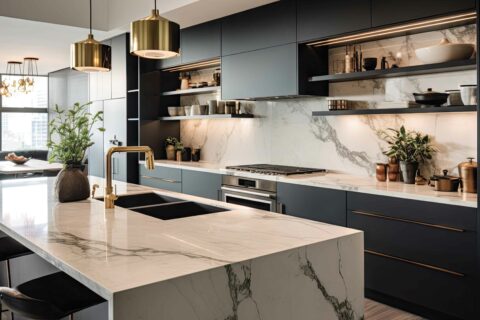April 8, 2022 • Buying
Real Talk on Rates: Is it time to lock in that mortgage rate?
By Kate Barker with Shannon Hendrikse, Accredited Mortgage Professional and Owner of Canmore Broker Inc.
With things starting to pick up after two years of uncertainty, the Bank of Canada recently raised the overnight lending rate, prompting lenders to increase Prime Rate by a quarter percent. More increases are expected this year as the Bank of Canada attempts to curb inflation, which has reached a 30 year high. So is now the time to lock into a steady fixed rate mortgage?
It depends.
It mostly depends on what your current mortgage rate is, your risk tolerance, and how strong your desire is to save money. “It’s no surprise that rates are going to increase as we come out of the pandemic and the economy begins to recover,” says Shannon Hendrikse, Accredited Mortgage Professional and Owner of Canmore Broker Inc. “While we’ve seen some intense spikes in fixed rates recently, which is actually not driven by the Bank of Canada’s decision but rather by increased yields in the bond market, the variable rates in comparison haven’t moved much at all.”
Even factoring in the most recent increase of a quarter percent, which affects only current variable rate borrowers, there is still a lot of opportunity for long term savings by staying with your variable mortgage. “In many cases, if someone locks in from variable to fixed right now, they’re instantly paying double the interest and losing much of their flexibility.” As it stands, Hendrikse says there’s a huge spread between fixed and variable rates. As time goes on and prime slowly begins to increase, that gap will likely start to close, but in many cases, Prime would need to increase six, seven, or more times before variable rate payments would be close to matching fixed rate payments now. This is especially true if borrowers have a great discretion below Prime on their variable rate (ie: Prime – x%).
For example: If someone is paying off a $400,000 mortgage based on a 25-year amortization, their variable rate may be sitting around 1.75%. That’s a monthly payment of $1645.94. Locking into a fixed rate at 3.75% would mean increasing your monthly payment to $2050.22. That’s a monthly increase of $404.28, which is going 100% towards interest.
“You could lock in now and pay that extra $400/month in interest, or you can look at your prepayment privileges with your mortgage lender and if you can afford the fixed rate payment, then add that $400/month, or even a portion of it, to your current payment while your variable rate is still low. This way, the extra money goes entirely toward your principal. This will pay your balance down faster and result in huge savings in the long run.”
It’s important to keep in mind that the central bank does not make decisions hastily and any increases are done so in a relatively slow and calculated way, typically 0.25% at a time, as to not shock borrowers and trigger defaults. While it is a necessary tool to try to combat inflation, with global uncertainty remaining high, there is a chance that we might not see as many increases as some are predicting. There are 6 remaining rate announcement dates for this year. The next one is scheduled for April 13.
So why all the messaging about locking into a fixed rate? Hendrikse says it’s important to consider the source, and understand what might be motivating the sentiment. “When you double your monthly interest, the banks and lenders at least double their profit earned on your mortgage. Not just on your interest paid every month, but also on the higher penalties that often come with fixed rates. Given that roughly 70% of mortgage borrowers in Canada break their mortgage before the end of their 5 year term, it makes sense why you may be feeling a gentle nudge towards locking in.”
Hendrikse stresses it’s important to look at all the information and make an informed decision about what’s best for you and your current situation. “In some ways, the consistent predictability of a fixed rate can provide peace of mind for borrowers. But some people prefer the peace of mind that comes along with a variable rate knowing they’re likely saving in the long run.”
When in doubt, call your mortgage broker to see what’s best for your situation. “It truly makes no difference to us whether you decide to go fixed or variable for your mortgage rate. Remember, brokers work for you, not for the lenders,” says Hendrikse. Your broker should know the ins and outs of the market, and they can objectively look at your situation and give you personalized advice.
At the end of the day, things are changing quickly and no one knows exactly how mortgage rates will evolve over the coming months and years. “It’s a moving target and it depends on what’s happening with rates at any given time,” says Hendrikse. But right now, given the gap between fixed and variable mortgage rates and the time it’ll take to close the two, it’s worth considering holding onto that variable rate and taking the incremental increases as they come.



